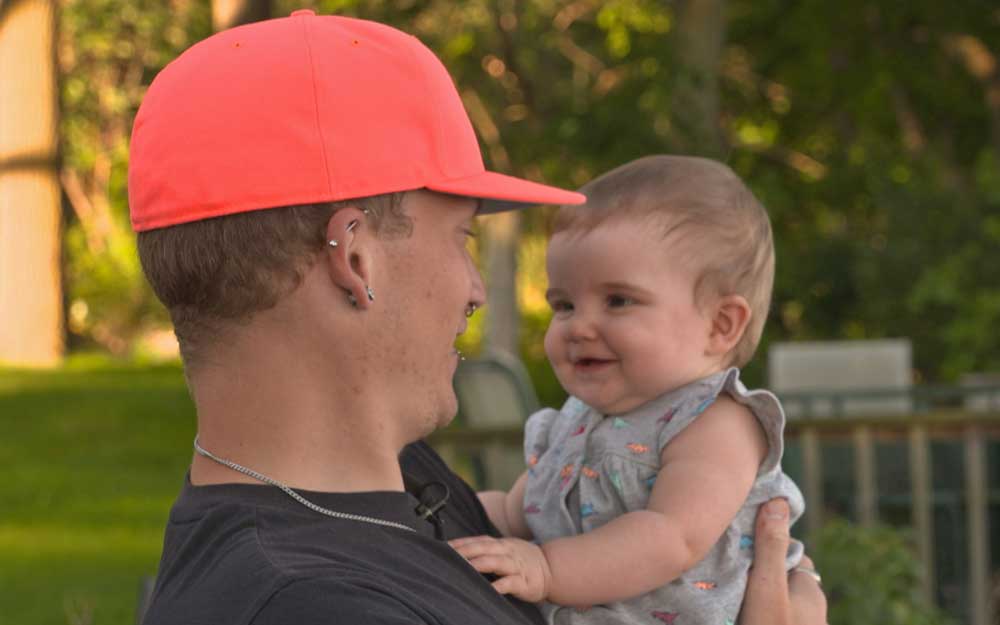Share this article:
,
Dylan seemed to be on the right track with good grades and lots of friends, but by the end of middle school, he was already engaged in drinking and smoking cigarettes and marijuana.
He says it would be years of ups and downs before things clicked. Serious drug use involved prescription misuse, cocaine, and eventually crack. It was a dangerous combination of anxiety, depression, and drug and alcohol use—each fueling the other—that left Dylan thinking that his future was doomed with no way out.
Finally, only after the birth of his second child, Dylan says he was ready to get the help he needed. His treatment at Rogers’ Herrington Center for Addiction Recovery targeted not only the substance use but also the underlying mental health conditions.
“I quickly realized that I was where I was supposed to be, because I was in a household of people going through the exact same thing that I was going through that wanted nothing more than to help. Being at Herrington, you can just feel that the staff want to do what they’re doing. It’s not just a job. It’s not just a paycheck; they’ve chosen this path. And it’s amazing. It doesn’t feel like a hospital, it doesn’t feel like rehab. It feels like home.”
Michelle Maloney, PhD, LPC, CAADC, Executive Director of Addiction Services at Rogers, says stories like Dylan’s are not uncommon. 96% of Rogers’ patients in addiction recovery programs have significant anxiety and/or depressive symptoms. Maloney explains that that’s why many Rogers programs target both addiction as well as the underlying mental health concern.
“For some, it can feel like that old carnival game “Whack a mole” when addiction and mental health are treated separately. By addressing both the substance use, depression and anxiety concurrently, it allows for the whole person to heal.”
Once in treatment, Dylan learned to understand what his triggers had been. “If I was mad if I was sad, if I was embarrassed, if I was jealous, or if I was happy, I would get high, I would drink. But being able to understand maybe where it came from and kind of getting into that past trauma, that was wonderful,” he shares.
At all levels of care from inpatient to residential to outpatient, Rogers’ approach focuses on co-occurring issues. In residential care including Mental Health and Addiction Recovery for adolescents at West Allis and the Herrington Centers for adults in West Allis and Oconomowoc, patients get the chance to address not only their substance issues but get to the why with underlying mental health concerns.
Dr. Maloney adds that treating co-occurring issues can be a matter of life and death: “It’s common for individuals to blame themselves for their substance use, mental health issues, and trauma that they have experienced. This can be a vicious cycle that perpetuates the addiction, feelings of shame, ongoing depression, and suicide attempts. It is for this reason, we really want people to understand addiction and mental health as a brain disease. Substance use is a choice at the beginning, but it eventually becomes involuntary as the dopamine in the brain changes. Knowing this information allows for patients and their families to begin the healing process and stop the cycle.”
As for Dylan, he is now thriving as a dad and has a job he loves.


